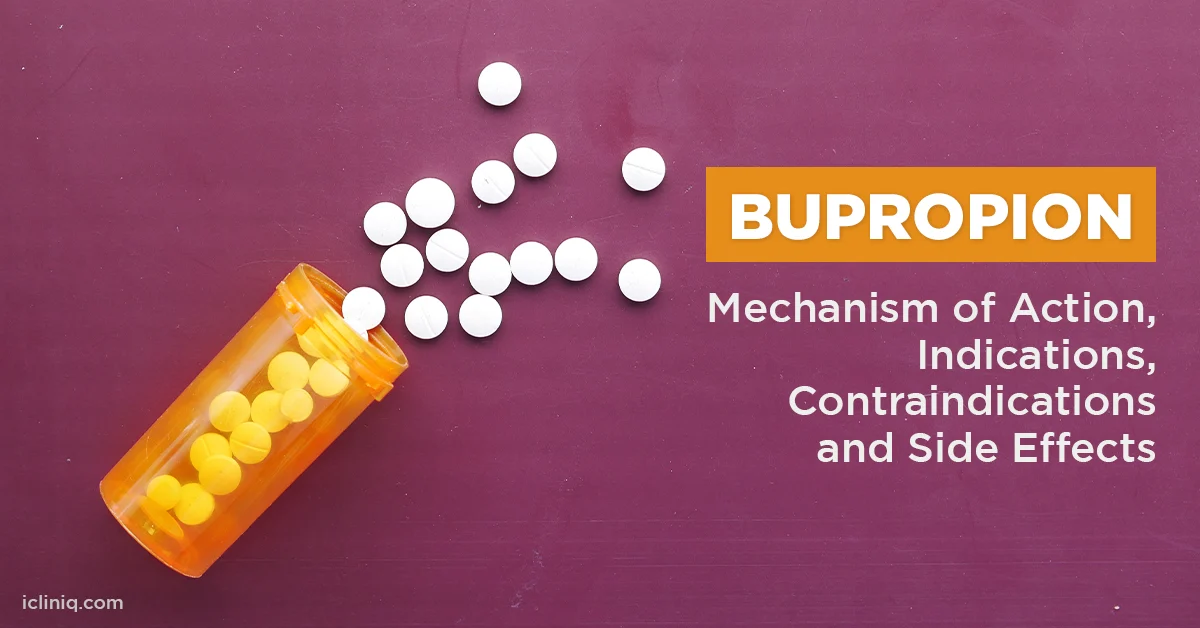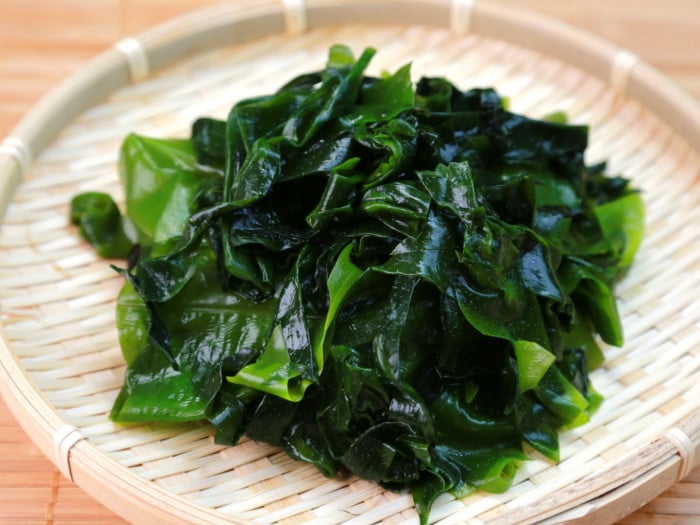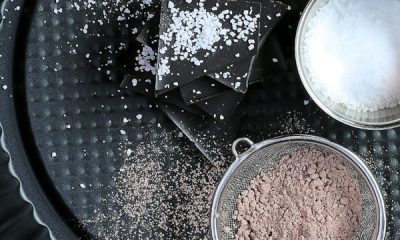Health
Contraindications and side effects of Bupropion

Discover the contraindications and side effects of Bupropion.
This psychotropic drug is used both to treat depressive symptoms and in tobacco addiction.
A drug belonging to the IRND.
Tobacco is one of the substances with psychoactive effects that have been used the most legally since its discovery.
Even though today smoking is prohibited in establishments and closed public spaces and its price has risen based on taxes, millions of people still have the habit of smoking.
But many of these people, at some point, need to stop. Although it is possible to do it voluntarily, in some cases they may require psychological and even pharmacological help.
In the latter case, one of the existing drugs used to quit smoking is bupropion, a drug that originated as an antidepressant.
What is bupropion?
Bupropion is a well-known antidepressant drug, although more than in its application for depression it is more common and distinctive due to its efficacy in the treatment of tobacco addiction.
In this sense, it is a treatment that does not include nicotine and that is recommended together with some type of therapy or psychological treatment.
This shows that psychotropic drugs are not designed following a plan from scratch, but rather that there is a certain process of trial and error in their development, and that sometimes there are benefits for the drug that were not even taken into account at first.
Bupropion is a specific dopamine and norepinephrine reuptake inhibitor, or NRDI , that works by increasing the levels of these neurotransmitters in the brain.
Compared with other drugs in the group of antidepressants, bupropion has the advantage of not causing sexual dysfunctions, although, on the other hand, its effectiveness alone seems less compared to other drugs on the market.
Thus, bupropion is an example that molecules related to other substances used for a certain class of disorder may be more useful in different health conditions, no matter how similar their structure is.
Mechanism of action
The function of bupropion and its mechanism of action is based on its role as a selective inhibitor of dopamine and norepinephrine reuptake.
This implies that bupropion works by preventing these two transmitters (associated with gratification and energy) from being re-uploaded by the presynaptic neuron, in such a way that they are available to postsynaptic neurons for a longer time.
Furthermore, it appears to stimulate the secretion of these neurotransmitters.
Thus, dopamine and norepinephrine levels and their transport increase at the brain level, something that can alter the mood.
Likewise, it has also been observed that it has an effect at the level of acetylcholine, binding to nicotinic receptors and exerting a non-competitive antagonistic effect.
Although there is no total security for this, this element is one of the possible explanations for its role in smoking cessation.
However, it must be taken into account that the exact way in which the mechanism of action of bupropion and psychotropic drugs in general works is still unknown.
Its use does not guarantee that it will work to alleviate the symptoms of the disorder to be treated, and its efficacy is only slightly better than that of a placebo.
That does not mean that in many cases it is very useful, simply that the percentage of patients who try this treatment and do not obtain any benefit is relatively high.
Indications: uses in disorders
Bupropion is a drug that has had various uses throughout its history. Although it was born as an antidepressant and today it is still used to treat this condition both as monotherapy (single therapy) and combined therapy (more common, to enhance some specific antidepressants when first-line drugs are not effective), the truth is is that by itself it is generally considered less effective than other antidepressants.
Where this drug stands out and has the greatest use is in smoking cessation, being effective in reducing the consumption habit and the urge to smoke.
In this sense, its mechanism of action seems to contribute to stopping craving (possibly due, on the one hand, to its antagonism of nicotinic receptors and its interaction with brain dopamine, although the exact mechanism is not fully known).
Another disorder in which it is used is seasonal affective disorder, in which depressive episodes appear associated with certain times of the year.
In addition to the above, it has sometimes been used in the treatment of bipolar disorder, especially during the depressive episodes that can occur in this disorder (although this use requires caution since there is a risk of turning the disorder into a manic crisis).
Also in ADHD. But in any case, further research is required and possible risks must be taken into account.
Side effects of Bupropion
Bupropion is a drug that is very useful in smoking cessation and is used in cases of depression, but as with other drugs, its clinical utility is not free of risks and possible side effects.
This occurs because the active substance in bupropion affects many areas of the body, not just the areas that could produce an improvement in symptoms.
This unwanted interaction generates a chain reaction of consequences to some extent unpredictable, which can lead to new health disorders (although they tend to disappear as the substance leaves the body). Therefore, its use should always be supervised and indicated by doctors.
In this sense, among the main side effects of bupropion, we can find the cause of insomnia (being one of the most frequent), dry mouth and dizziness, headaches, nausea, constipation, rapid heartbeat, tremors, skin rashes, agitation, and nervousness. It can also cause a decrease in appetite.
In more serious cases it can generate seizures (this being one of the most well-known serious risks), arrhythmias, hallucinations, panic or difficulties in breathing or feeding, or inflammations being necessary to see a doctor. In some cases, it can cause irritability, hostility, depression, suicidal thoughts.
Contraindications of Bupropion
In addition to these side effects, this drug is contraindicated in some sections of the population.
People who are allergic to it or any of its components (something obvious on the other hand), those who consume certain medications (especially MAOS), dependence on substances other than tobacco (such as alcohol, drugs, and pharmaceuticals), and those who suffer from epilepsy, brain tumors and anorexia nervosa or bulimia (since it reduces the appetite).
It is also not recommended, although it can sometimes be used if the benefits are considered greater than the risks, in cases of people with kidney or liver failure, head trauma, insomnia, or the use of other medications that may interact with bupropion.
Diabetics, alcoholics, hypertensive or people with psychiatric disorders (since it can contribute to the appearance of mania in bipolar or psychotic crisis in schizophrenia, among others) also have it contraindicated (or at least the treatment should be done with a high level of control of the patient’s condition and the doses administered) due to the risk of seizures and other side effects.
Finally, it is not recommended for pregnant and lactating women either
Health
8 shocking health benefits of Tamari

Table of Contents
Health
10 benefits of wakame seaweed and side effects

Table of Contents
-
- 1.- Benefits of wakame seaweed for diabetes
- 2.- Benefits of wakame seaweed for weight loss
- 3.- Helps balance hormones
- 4.- Benefits of wakame seaweed for Bones
- 5.- Benefits of wakame seaweed for breast cancer
- 6.- Benefits of wakame seaweed during pregnancy
- 7.- Reduce high blood pressure
- 8.- Reduces cholesterol naturally
- 9.- Good source of iron
- 10.- Rich in Omega-3 fatty acids
- How to use and cook Wakame seaweed
- Side effects of wakame seaweed
- Discover the 10 shocking health benefits of wakame seaweed and side effects.Seaweed has long been a staple of Japan, which is one of the longest living cultures in the world. Is there a connection? In particular, the benefits of wakame seaweed are rich in various vitamins and minerals.
They provide a great nutritional boost while supporting the cardiovascular system, maintaining hormonal balance, strengthening bones, improving circulation, and promoting healthy skin.
Some research suggests that the benefits of wakame seaweed may reduce breast cancer incidence and mortality among postmenopausal women; It’s no wonder that Japanese marine farmers have been farming wakame for hundreds of years.
Additionally, like many sea vegetables, wakame seaweed adds a delicious component to a variety of foods but has recently gained popularity due to its many health benefits.
-
1.- Benefits of wakame seaweed for diabetes
An important component in the benefits of wakame seaweed is fucoxanthin, it has an antidiabetic effect.
The anti-obesity and anti-diabetic effects of fucoxanthin-rich wakame seaweed lipids were tested in a group of obese mice, this study showed that these algae can significantly suppress body weight.
Before wakame treatment, the mice showed signs of hyperglycemia, hyperinsulinemia, and hyperleptinemia, but the addition of wakame algae to the diet normalized these conditions.
The researchers concluded that wakame seaweed can prevent diabetes, related disorders, and obesity by reversing the insulin resistance that is due to a high-fat diet.
2.- Benefits of wakame seaweed for weight loss
The fucoxanthin present in wakame seaweed benefits promotes fat burning within the fat cells of animals.
Fucoxanthin is believed to fight fat in two ways: it encourages the action of a protein that causes fat oxidation, and it is found in the type of fat that surrounds the organs.
It also promotes the production of DHA in the liver, which helps lower bad or LDL cholesterol.
Fucoxanthin also reduces the weight of abdominal white adipose tissue in rats and mice, making it one of the best fat-burning foods.
3.- Helps balance hormones
The benefits of Wakame seaweed provide in addition to manganese, a little iron, and calcium, three of the minerals that help balance hormones naturally.
Manganese and calcium help improve PMS symptoms; Because manganese helps with hormonal regulation and shows antioxidant activity, wakame seaweed can also work as a natural treatment for infertility.
4.- Benefits of wakame seaweed for Bones
One hundred grams of wakame seaweed provides 15 percent of your daily value for calcium, which is essential for preventing osteopenia or osteoporosis.
Foods rich in calcium help increase bone growth and accelerate bone repair, while calcium deficiency occurs easily because we lose the mineral through the intestines, kidneys, and skin.
Osteoporosis is a common feature of aging; It involves bone loss that begins in women at the time of menopause and men at 55 years of age.
It can lead to increased rates of fractures, which is why getting enough calcium in your diet is so important.
5.- Benefits of wakame seaweed for breast cancer
There is a small body of research that suggests there is a relationship between seaweed and a lower risk of breast cancer.
In traditional Chinese medicine and Japanese folk medicine, seaweed is used to treat tumors. People who eat seaweed regularly, especially in Japan, have dramatically lower rates of breast cancer.
In 2013 the impact of the introduction of the benefits of wakame seaweed in the diet of postmenopausal women was evaluated.
15 healthy postmenopausal women were recruited for the three-month clinical trial.
Five of the women had no history of breast cancer (they served as a control group) and 10 were breast cancer survivors.
Consumption of seaweed reduced concentrations of the urokinase-type plasminogen activator receptor, a protein that is present in several physiological sites and is generally higher among postmenopausal women.
The concentration of uPAR is known to influence cell surface signaling, adhesion to calls, and growth factor communication and response in breast tissue.
Researchers believe that the ability of wakame seaweed to decrease these receptors may help explain the lower incidence of breast cancer and mortality among postmenopausal women in Japan.
There’s no question about it, science is backing up these amazing benefits of wakame seaweed, and more studies are underway to evaluate its effectiveness as a cancer treatment or preventive measure.
6.- Benefits of wakame seaweed during pregnancy
Folate or B12 is an essential vitamin present within the benefits of wakame seaweed; it is necessary to copy and synthesize DNA, produce new cells, and support nerve and immune function.
Folate is known to be one of the most critical vitamins or a vibrant healthy pregnancy.
For pregnant women, folate deficiency is especially risky because it can lead to neural tube defects such as spina bifida, anencephaly, limb malformations, and heart complications.
Because folate is needed to copy DNA and build new cells, it is vital that pregnant women consume enough folate foods, such as wakame seaweed, to decrease the risk of developmental problems.
7.- Reduce high blood pressure
Several studies have investigated whether the benefits of wakame seaweed can naturally prevent high blood pressure.
One study found that treatment with wakame seaweed significantly lowered systolic blood pressure in spontaneously hypertensive rats.
Another study in Japan admitted that the wakame diet may have beneficial effects on hypertension.
A study was carried out in 2011 and examined whether seaweed could affect blood pressure in children.
Healthy Japanese preschoolers, ages 3 to 6, measured blood pressure and pulse before and after a three-day period that involved consuming seaweed.
Blood pressure measurements, complete diet records, and parent-reported height and weight were obtained for 223 boys and 194 girls.
The researchers found that girls with the highest seaweed consumption had significantly lower systolic blood pressure readings.
The results suggest that seaweed ingestion was negatively related to diastolic blood pressure in boys and systolic blood pressure in girls, demonstrating that seaweed could have beneficial effects on blood pressure among boys.
8.- Reduces cholesterol naturally
The fucoxanthin present in most of the wakame seaweed benefits serves another function: it stimulates the liver to produce DHA, which helps reduce the amount of harmful cholesterol in the body.
Therefore, it is an excellent food for lowering cholesterol.
One study found that dry wakame seaweed powder altered the activities of enzymes involved in fatty acid metabolism in the liver in rats.
Rats that were fed diets containing powdered wakame had lower levels of triacylglycerol, suggesting that wakame seaweed is useful as food to prevent hyperlipidemia.
Hyperlipidemia means that there are too many lipids or fats in the blood, this leads to high levels of cholesterol and triglycerides, which can lead to the development of dangerous pests and blockages.
9.- Good source of iron
The iron in wakame kelp benefits increases red blood cell production and helps with the metabolic enzyme processes the body carries out to digest protein and absorb nutrients from food.
An iron deficiency is the most common nutritional deficiency in the world and is associated with developmental delay, altered behavior, decreased intellectual performance, and decreased resistance to infection.
Excessive iron supplements can cause iron overload and should be avoided, so the safest and surest way to get enough iron per day is to stick to iron-rich foods like wakame.
10.- Rich in Omega-3 fatty acids
Wakame seaweed is a rich source of omega-3 fatty acids, which is an essential fatty acid because it is not made by the human body, but it is still necessary for normal metabolism.
Omega-3 foods can be used to lower cholesterol, fight depression, reduce anxiety, reverse diabetes, reduce inflammation, relieve arthritis, and promote skin health.
They have also been shown to support weight loss, healthy pregnancy, sports recovery, and thickening of hair and nails.
Due to the excessive consumption of omega-6 fats in the Western world, we must stick to the omega-3 foods that our bodies need.
How to use and cook Wakame seaweed
You can find dry or fresh wakame seaweed; It can be stored in a refrigerator, where it is preserved with sea salt, or it can be found in a sealed package where it is dehydrated and brittle, similar to nori (the seaweed used for rolling sushi).
If you have dehydrated wakame seaweed, start by cutting it into small pieces as it will expand after rehydration.
To rehydrate wakame, soak in water for approximately 30 minutes or until smooth; It can then be added to soups, French fries, and salads. The water used to rehydrate wakame is also packed with nutrients, so it can be used as a base for the soup.
Side effects of wakame seaweed
Although wakame seaweed is a nutritious food that offers a handful of health benefits, it does contain a good amount of sodium, 872 milligrams per 1 ounce of wakame.
People with high blood pressure may want to watch their wakame intake to make sure they are not consuming too much sodium in a day, as sodium works against potassium to lower blood pressure levels.
Benefits Of Wakame Seaweed For Diabetes
However, if you don’t want to eat Wakame seaweed directly, add them to different foods. For instance, you can make rice balls with wakame seaweed or just use it to give flavour to sushi. Talking about sushi, if you are interested in eating delicious sushi, sushiro delivery can deliver fresh sushi to your doorstep.
Health
Health benefits of pumpkin flower for eyesight

Table of Contents
- Pumpkin flower properties
- All your general health benefits of pumpkin flower
- How can pumpkin blossoms protect our eyesight
- Some precautions
- Discover the Health benefits of pumpkin flower for eyesight.The pumpkin flower is a highly recommended food for the many benefits it brings due to its magnificent properties and for being an extraordinarily versatile food, since the pumpkin flowers can be prepared raw or cooked (in batter, for example) and also added to soups and salads.
Pumpkin flower properties
The main properties of this food are:
•The pumpkin flowers are an important source of vitamins A, C, B1, B2, B3 and B9.
•They are especially rich in calcium.
•They also provide various minerals: iron, calcium, phosphorus, potassium and magnesium.
•It is a food that contains hardly any saturated fat, sodium and fiber.
•It is also very low in cholesterol.
•Almost 90% of its content is water.
At the quantity level, for every 100 grams of the edible part of the pumpkin flower we find:
•95, 15 grams of water.
•Only 0.24 grams of fat.
•Calcium is counted between 39 and 47 grams.
•Smaller amounts of potassium, iron, and magnesium.
All your general health benefits of pumpkin flower
•The pumpkin flower helps to delay the symptoms of aging, since it prevents the oxidation of LDL (which is a low-density lopoprotein).
•It promotes the formation of white blood cells, which strengthens the immune system and, therefore, the effective response of the body against the attack of infectious agents.
•It favors the production of repair enzymes.
•Being rich in phosphorus and calcium, they are highly recommended for children and adolescents, since they are in full growth.
•In addition, pumpkin flowers increase the formation of repair and anticancer enzymes and may even help block the development of malignant cells.
How can pumpkin blossoms protect our eyesight
Like all foods rich in Vitamin A, pumpkin flowers help to delay and minimize the symptoms of aging in the body, and especially in the sense of sight. Hence, it can be said that this food helps prevent age-related visual pathologies:
•Cataracts .
•Diabetic retinopathy .
•Age-Related Macular Degeneration ( AMD ).
Some precautions
The pumpkin flower is a food that, as we have commented, can be eaten both raw and cooked and stands out for being very digestive. However, to consume it safely, it is advisable to take some precautions:
Buy them in specialized stores, to ensure that they are perfectly identified and that we know that their origin is totally safe.
They should be washed very well with fresh water before use.
Once they are perfectly washed, you have to drain them well, hanging them by the stem, being very careful not to spoil the petals.
It is not advisable to keep these flowers in the refrigerator for more than 24 hours, as they are very delicate. The ideal is to buy them in the right amount before consuming them.
Eating foods rich in Vitamin A , including pumpkin flowers, is one of the simplest and most natural ways to protect our eyesight. If we also lead a life where healthy habits prevail, such as exercising to the best of our ability and going to a specialist for regular check-ups and check-ups, we will greatly increase the chances of enjoying good visual health for a long time.
We hope the article on the Health benefits of pumpkin flower for eyesight has been of help.
-

 Food1 year ago
Food1 year ago10 + Benefits of carrot juice and side effects
-

 Health11 months ago
Health11 months ago50 Super Healthy (And Very Often Cheap) Foods
-

 Health1 year ago
Health1 year ago5 Shocking health benefits of kinkeliba and side effects
-

 Food1 year ago
Food1 year ago8 shocking benefits of leek juice and side effects
-

 Health1 year ago
Health1 year agoBenefits of guava leaves Sensually
-

 Weight Loss1 year ago
Weight Loss1 year agoChaz Bono weight loss secret
-

 Health1 year ago
Health1 year ago13 shocking health benefits of Thai eggplant
-

 Food11 months ago
Food11 months ago19 Benefits of tobacco plant and side effects












